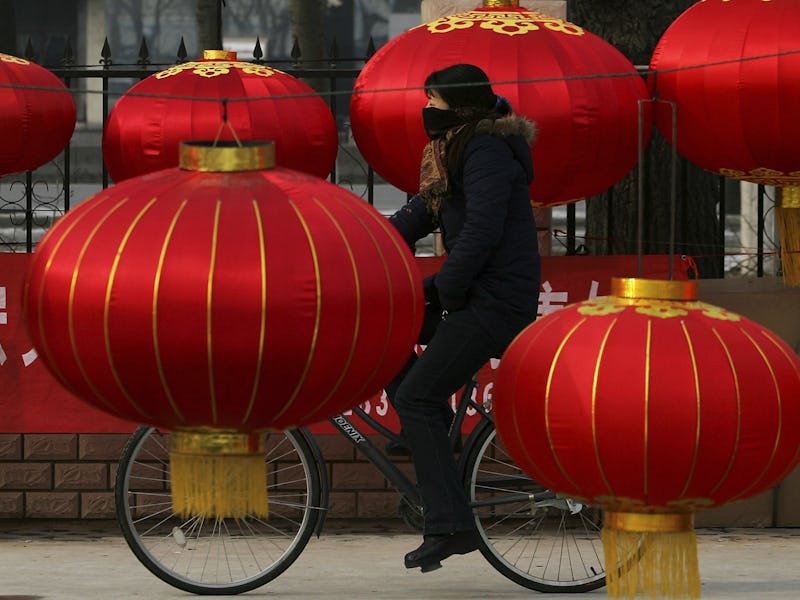The Chinese Government Is Suppressing Dissent Through Crappy Credit Scores
The surveillance state aims to control the financial future of political enemies.

In the United States, a poor credit score is earned through a genuine mismanagement of personal finance, usually stemming from foolish Visa or MasterCard swipes, a medical calamity, or student loan defaults. In China, the government is using the score as a cudgel, knocking down scores of people who criticize the state.
First revealed by the Swedish news site Kit, the Chinese government has been issuing credit scores based off the political opinions of its citizens, then releasing them in a publicly available format through the website Credit China. There’s also an app called Sesame Credit, engineered by Alibaba, one of China’s biggest IT companies, where users are encouraged to trumpet their own advantageous credit rankings in a kind of sycophantic way, kissing up to the government.
The basis for the credit program, which will be made mandatory by 2020, is outlined briefly in an Alibaba press release.
“Sesame Scores, which range from 350 to 950 points, are calculated based on five factors — credit history, behavioral preference, fulfillment capability, personal attributes and social network — and are indications of the users’ creditworthiness,” the press release states.
It’s how “teacher’s pet” is played when dark, Orwellian concepts are actualized in 2015.
The social orientation of the Chinese government’s credit scheme — namely, the Sesame App — is meant to instill a certain wariness or distrust between users who might fraternize with each other or even be family members. As Rick Falkvinge explains over at Privacy Online, many Chinese citizens will find their credit scores dinged merely from associating with people who publish critical statements or say negative things about the government. “If any of your friends do this — publish opinions without prior permission, or report accurate but embarrassing news — your score will also deteriorate. And this will have a direct impact on your quality of life.”
There are ways to earn the trust of the regime under the new credit system, however. Falkvinge notes that buying things that the government encourages citizens to buy, like housewares and baby clothes, boosts a person’s credit rating.
The higher one’s score climbs, the more privileges like visas for international travel become available. A Sesame Score of 750 or higher affords Chinese citizens entry into the EU, for example.
The Chinese government has a notorious record of suppressing dissent in manners that are typically bolder and more overt. Social media accounts are routinely deactivated by the regime’s State Information Internet Office (IIO) for espousing anti-government sentiment. Since the IIO polices content by combing the web, and then routinely shutting down accounts, it’s not surprising that many of the world’s biggest social networks — Facebook, Instagram, and Twitter, e.g. — remained banned within China.
The advent of a credit rating system that fluctuates according to one’s cooperation with state policies represents a new form of coercion. It’s the kind of clandestine undertaking that hits home in a grim, tangible way. If anything could be said in its favor: At least it tells you, in a single number, where you stand in the state’s eyes.